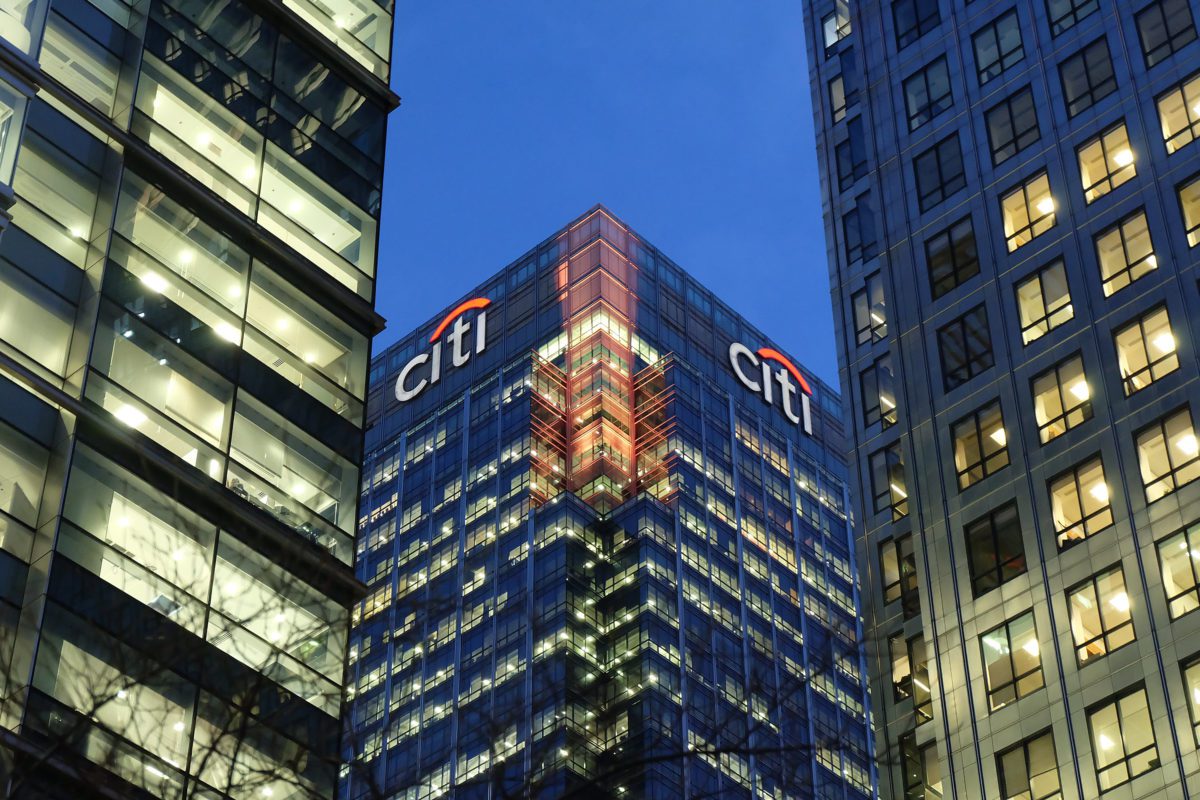Analyst Coverage Change
In a research note, Bank of America Securities has raised their target price for Citigroup’s stock to $60 and has maintained the “Buy” rating on the stock, as of January 16th, 2023.
In additional analyst coverage, Societe Generale has lowered the target price for Citigroup stock to $70 on January 11th, 2023. Jefferies Financial LLC has raised their target price for Citigroup stock to $43 on January 10th, 2023. Deutsche Bank Capital has lowered the target price for Citigroup stock from $52 to $46 on January 6th, 2023. Morgan Stanley maintains its Underweight rating for Citigroup stock and has lowered its target price from $45 to $41 on January 6th, 2023. STA Research maintains its Hold rating for Citigroup stock and has a target price of $43 on January 6th, 2023.
Citigroup Stock Forecast
According to the analysis of 20 analysts, the average target price for Citigroup Inc’s stock is $54.71 in the next 12 months. The average rating given by these analysts for Citigroup’s stock is “Hold”, which means that they believe the stock will perform in line with the overall market. However, Stock Target Advisor’s analysis has rated it as “Bearish” based on 3 positive signals and 12 negative signals. This means that they believe the stock is likely to perform worse than the market.
At the last closing, Citigroup Inc’s stock price was $49.92. The stock has seen some changes in the recent past, it has increased by 5.52% over the past week, 11.88% over the past month, but has decreased by 25.41% over the last year.
Earnings and Outlook
Citigroup recently reported its Q4-2022 results, which showed that the bank is building credit reserves in anticipation of a mild recession and is also frontloading investments to allow it to reach its medium-term profitability targets. Despite a strong capital position and an appealing tangible book discount, buybacks remain on hold. The bank operates in four main segments: Institutional Clients Group, Personal Banking and Wealth Management, Legacy Franchises, and Corporate/Other. Personal Banking and Wealth Management experienced the highest year-over-year revenue growth at 5%, driven by U.S. personal banking, but expenses increased at a faster 7% pace due to investments in transformation and control initiatives. The segment’s return on tangible common equity (RoTCE) was underwhelming at just 1.4%. Overall, Citigroup’s provisioning can be described as somewhat conservative.
Positive Fundamentals
When considering investing in Citigroup stock, there are a few positive factors to consider.
The stock is currently trading at a lower price compared to its book value. This means that it may be undervalued and could offer investors a good buying opportunity. It’s important to note that this should be considered in conjunction with the company’s overall financial performance to ensure there is no specific reason for the undervaluation. Another positive factor is that the company has been generating positive cash flow in the last four quarters. Positive cash flow is an important metric to consider as it indicates the company’s ability to generate cash from its operations, which can be used for reinvestment, debt reduction, or dividend payments. (https://emdrprofessionaltraining.com/) Additionally, Citigroup has a high Gross Profit to Asset Ratio. This ratio measures a company’s profitability by comparing its gross profit to its assets. A high ratio indicates that the company is generating high returns on its assets and is considered a favorable indicator of long-term returns among value investors.
Negative Fundamentals
The company has a low market capitalization, which means that it is a relatively small player in its sector. This may make the company less stable in the long run, unless it has a unique technology or market that can help it grow or get acquired in the future. Another potential concern is that the company has been delivering poor risk-adjusted returns compared to its peers. Even if it is outperforming on returns, the returns are unpredictable, so investors should proceed with caution. Additionally, the stock has been highly volatile, with total returns that are above median for its sector over the past 5 years. This high volatility may not be suitable for investors who do not have a high risk tolerance. The company also has low dividend returns, with an average income yield that is below median compared to its peers over the past 5 years. This may not be a problem for investors who are not looking for income. The stock is also overpriced compared to earnings and cash flow, and is priced above the median for its sector. It’s also worth noting that the company’s management has delivered below median return on equity and return on assets in the most recent four quarters compared to its peers. Citigroup is also highly leveraged, which means that it has a high level of debt compared to its equity. This can be a red flag, but it’s important to consider the context, as sometimes high leverage is used to support growth. Finally, Citigroup has shown below median earnings, revenue, and dividend growth in the previous 5 years compared to its sector.
Fundamental Analysis Score
Citigroup’s stock is assigned with a very bearish stance, with a fundamental analysis score of 2 out of 10.































